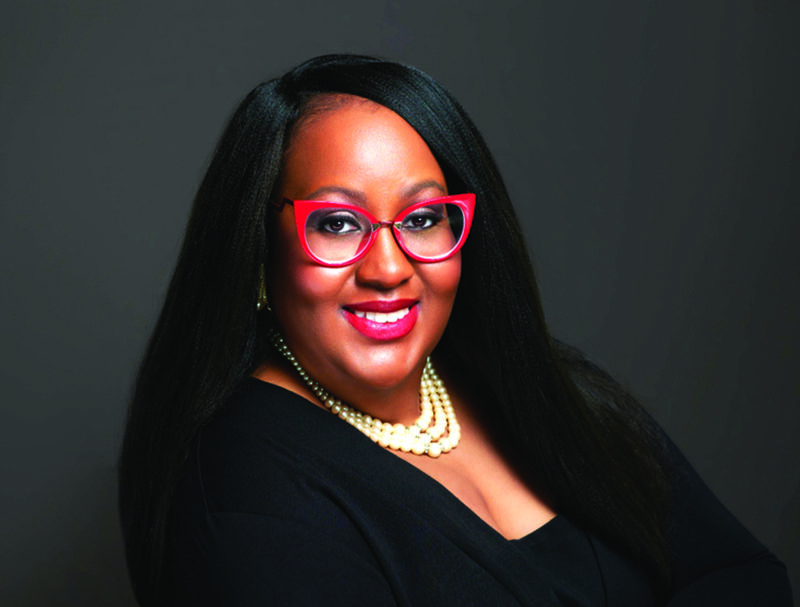IN RESPONSE | Abortion foes ignore white privilege


Re: “Pro-Life Dems must speak up,” March 2, by Thomas J. Perille
Restrictions to abortion are racist. Decision makers in our country have a long history of restricting the bodily autonomy of Black and brown people, from slavery to forced sterilizations, to incarceration and police violence. Abortion bans are just one more manifestation of this infringement on the right to control our own bodies.
The first thing that struck me was the way Perille chose to speak for communities that he is not a part of – namely, birthing communities and communities of color. In this piece, he makes sweeping generalizations about communities of color, even implying that to be anti-abortion is to be anti-racist. This argument goes against what we see from the anti-abortion movement – in reality, they often spew racist rhetoric and go so far as to compare abortion to slavery or Black genocide. And it goes against what we’ve seen directly from Black women, who often lead the fight for reproductive justice, a framework created by Black women themselves.
When Perille argues “giving birth should not be another manifestation of white privilege,” what he fails to mention is that whether or not it “should be,” it is our reality. Our country is deeply unsafe for people of color, especially Black women. Black women are impacted by systemic racism that makes it more likely that forced birth will push them into poverty and put their health and safety at risk. Black women face maternal mortality rates that are three-to-four times higher than for white women, regardless of socioeconomic status. Black individuals have a disproportionately high chance of interactions with police that lead to death, meaning that even after giving birth, Black women and families do not have access to the right to raise their children in a safe environment. When we ban abortion, white and wealthy people will still have the privilege to travel to seek an abortion. They will always have the privilege to give birth, if they choose, and know that their children will be safe from systemic oppression. They will have access to the resources they need – prenatal and post-natal care, time off of work, access to high-quality childcare, the list goes on. The ability to safely give birth is absolutely a manifestation of white privilege – and it’s why our communities need access to the right to choose when and if giving birth is right for them.
Because one crucial barrier to abortion access is stigma and misinformation, it’s important to address some of the inaccuracies named in Perille’s piece. I want to clarify that the “abortion reversal pill” is a myth. Studies conducted in the past on this treatment have been debunked or stopped early due to safety concerns. There is no scientific evidence that this is a safe and effective treatment and experts agree that legislating or otherwise mandating this practice is unethical and dangerous. To continue to discuss this treatment is to continue to spread misinformation and imply that people who decide to get abortions don’t know what’s best for them – which is harmful and false. Furthermore, the idea of abortion “up until birth” is a fallacy and simply not how abortion care works. People need access to abortions later in pregnancy for a variety of reasons. And after turning out to defeat a ballot measure that would have banned abortion later in pregnancy in 2020, Colorado has made it clear that access to abortion at any point in your pregnancy is a right that needs to be protected.
Young people in particular have made it known time and time again that they support access to abortion. They turned out in record numbers in 2020 to defeat the Colorado abortion ban, and they consistently show up and hold decision makers accountable to protecting the right to abortion. Racial justice, abortion rights and economic justice are consistently named as top priorities for young people, and many young people understand and speak to the intersection of these issues. The student debt crisis has impacted our generation’s financial freedom and economic mobility, alongside the high cost of living, low wages, and skyrocketing rent – all of which disproportionately harm young people of color and low-income youth. And as we continue to face a pandemic and an ever-mounting climate crisis, the need to be able to plan and care for our families and our futures is more urgent and crucial than ever.
Addressing systemic issues that impact low-income communities and communities of color is an important priority, and it’s one that progressive movements often don’t have the luxury to fight for because we are constantly beating back attacks on human rights. While we fight for a world without systemic oppression, we must also ensure that our people aren’t dying or being pushed into poverty due to a lack of abortion access. We have an opportunity to protect abortion access at the legislature this year by passing the Reproductive Health Equity Act. This bill would make abortion a fundamental right in our state constitution, and protect the bodily autonomy of communities that have historically had these rights stripped away. Now is the time to act – please ask your legislators to vote yes on the Reproductive Health Equity Act.
Lauren Smith is issue campaigns manager for New Era Colorado.









